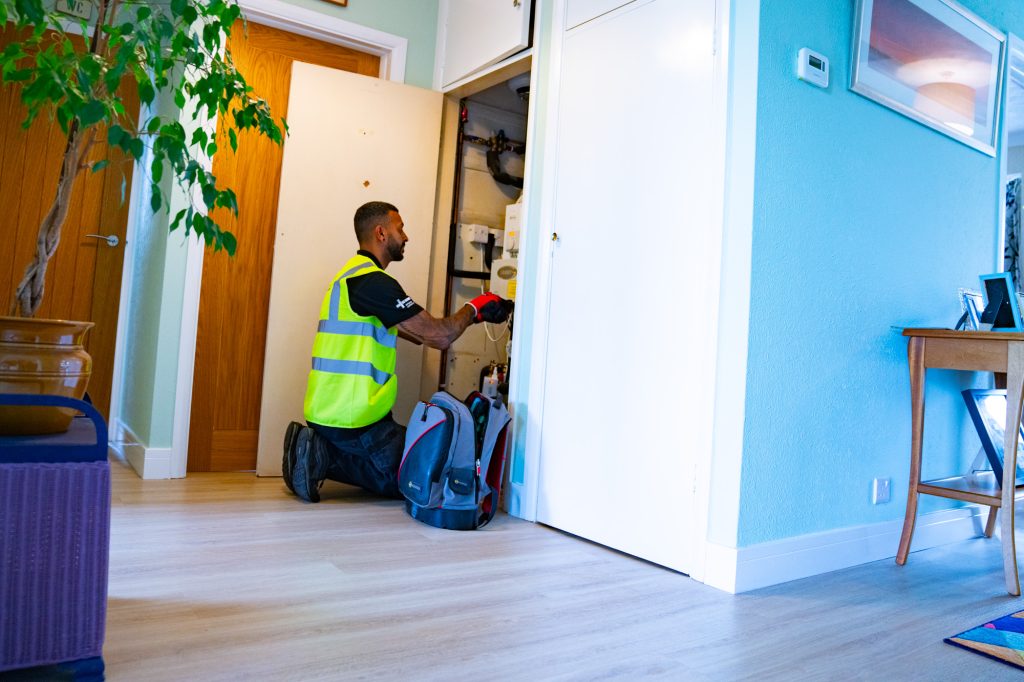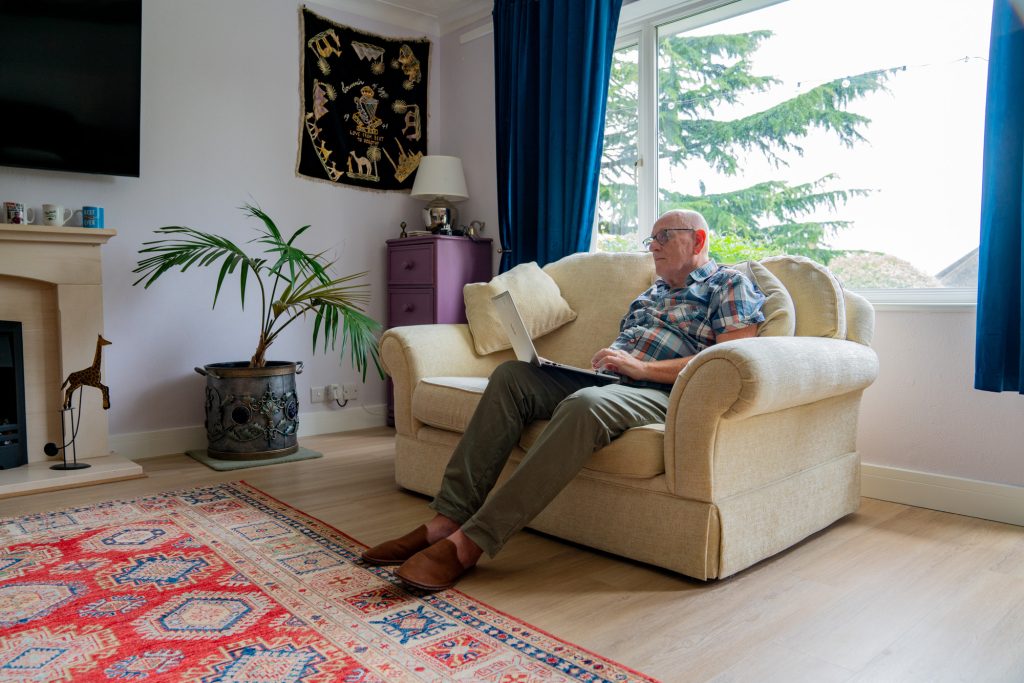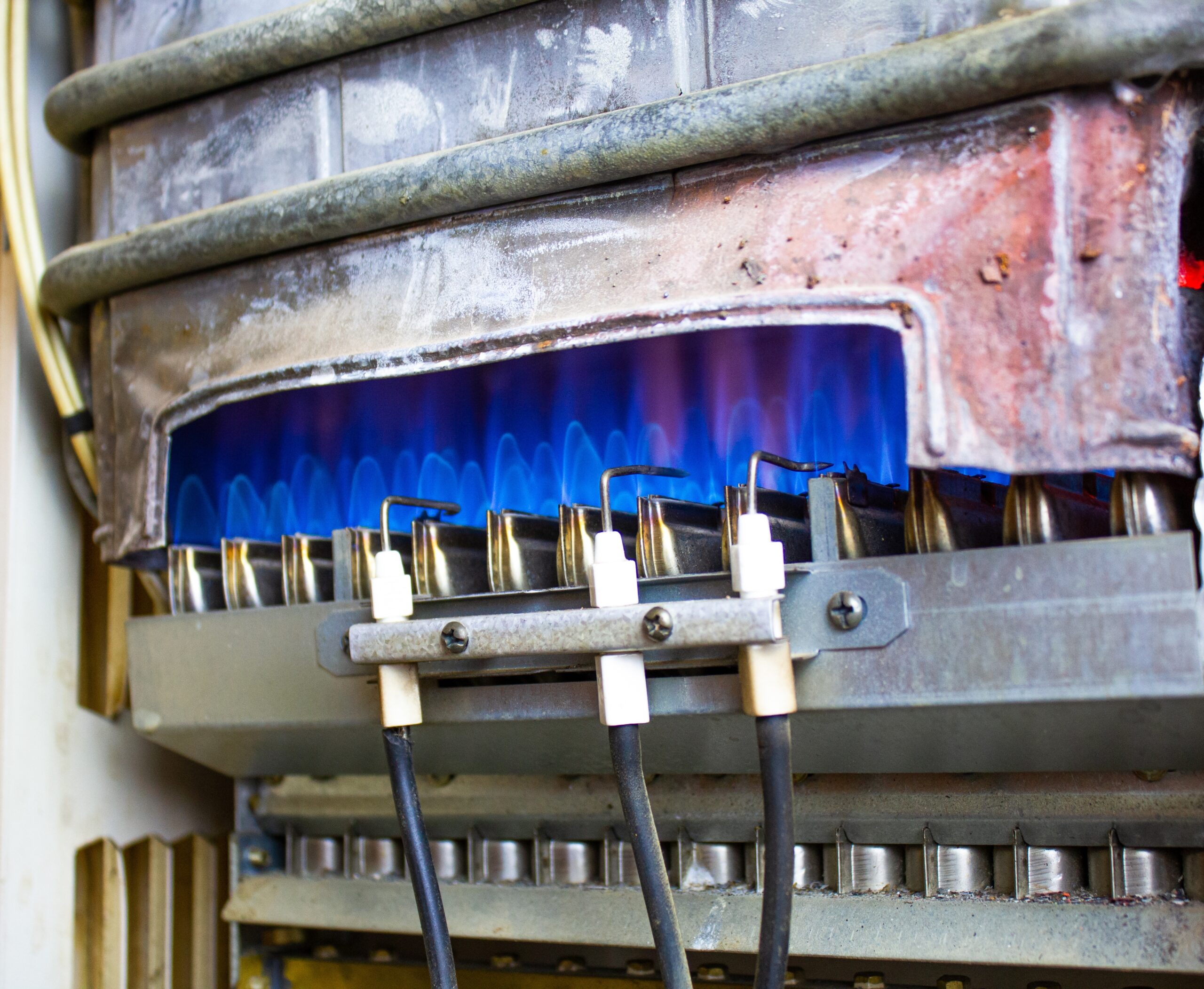With energy costs and environmental concerns rising, free boiler schemes have become attractive for households.
The schemes give eligible residents new, energy-efficient boilers at little to no cost, helping to reduce both utility bills and their carbon footprint.
Understanding how these programmes work, who qualifies, and the benefits they offer is crucial for anyone considering upgrading their heating system through such initiatives.
In this guide, we will delve into everything you need to know about the schemes, so you can make an informed decision.

Introduction to Free Boiler Schemes
What Are Free Boiler Schemes?
Free boiler schemes are government-funded programmes designed to help low-income households upgrade their old, inefficient boilers to new, energy-efficient models at little to no cost.
These schemes are part of broader efforts to reduce carbon emissions and improve energy efficiency in homes across the UK. By replacing outdated boilers, these initiatives aim to lower energy bills for residents, making heating more affordable while also benefiting the environment.
Typically, the schemes are funded through the Energy Company Obligation (ECO), which requires major energy companies to support energy-saving measures for qualifying households.
To benefit from these schemes, eligible homeowners or tenants usually need to meet specific criteria, such as being on certain income-related benefits or living in a property with poor energy efficiency.
Importance of Free Boiler Schemes
For many households, the cost of replacing an old boiler can be expensive. By providing a new boiler at little to no cost, these schemes alleviate financial strain and make it easier for residents to heat their homes efficiently. This is particularly important for low-income families who might struggle with high energy bills.
From an environmental perspective, upgrading to energy-efficient boilers helps reduce carbon emissions. Old boilers often waste a significant amount of energy, contributing to a higher carbon footprint. By switching to modern, high-efficiency models or heat pumps, households lower their energy consumption, making a positive impact on the environment.
Additionally, these schemes support national net zero goals for energy efficiency and carbon reduction, helping fight against climate change.
Who Benefits from Free Boilers?
Free boiler schemes primarily benefit low-income households, including those receiving certain income-related benefits. These schemes are designed to support vulnerable populations, such as pensioners, single parents, and individuals with disabilities, who may struggle to afford the upfront costs of a new boiler.
By providing an energy-efficient boiler at no or minimal cost, these programmes help reduce heating expenses, making it more affordable for these households to keep their homes warm.
Additionally, tenants living in poorly insulated properties can also benefit. Rental properties often have outdated heating systems, and landlords may be hesitant to invest in upgrades. Free boiler schemes can alleviate these issues by offering a cost-effective solution for both tenants and landlords.
Overall, these schemes not only help reduce energy bills but also improve living conditions and contribute to better health outcomes by ensuring homes are adequately heated. The environmental benefits of reduced carbon emissions are an added advantage, benefiting society as a whole.
Eligibility Criteria Explained
Qualifying for a Free Boiler
Qualifying for a free boiler under these schemes typically involves meeting specific criteria related to income and property type. Generally, households must be receiving certain income-related benefits to be eligible.
These benefits can include:
- Income Support
- Pension Credit
- Child Tax Credit
- Working Tax Credit
- Universal Credit
Each scheme may have slightly different requirements, so it’s essential to check the specific eligibility criteria for the programme you are considering.
In addition to income-related benefits, the condition of your current boiler and the energy efficiency of your home may also play a role.
Usually, the existing boiler must be inefficient or broken to qualify for a replacement. Moreover, properties with low energy efficiency ratings are often prioritised to ensure the most significant impact on reducing energy consumption and carbon emissions.
To determine your eligibility, you may need to complete an online application or undergo a home assessment conducted by an approved installer.

Required Documentation
When applying for a free boiler scheme, you will need to provide specific documentation to prove your eligibility. This typically includes proof of income-related benefits, such as recent award letters or statements showing your entitlement to benefits like Income Support, Pension Credit, or Universal Credit. These documents help verify that you meet the financial criteria set by the scheme.
Additionally, you may need to provide identification documents, such as a passport or driving licence, to confirm your identity and residency status. Proof of address, such as a recent utility bill or council tax statement, may also be required to establish that you live at the property in question.
In some cases, you might need to provide information about your current boiler and the energy efficiency of your home. This could involve an assessment by a qualified technician, who will evaluate the condition of your boiler and the overall energy performance of your property.
Collecting and organising these documents in advance can streamline the application process and help ensure a successful outcome.
Common Eligibility Mistakes
When applying for a free boiler scheme, several common mistakes can affect your eligibility. One frequent error is failing to provide complete or accurate documentation. Missing documents, outdated benefit letters, or incorrect information can delay or disqualify your application. Ensuring all your paperwork is up-to-date and correctly submitted is crucial.
Another common mistake is misunderstanding the eligibility criteria. Some applicants may assume they qualify based on income level alone, without realising that specific benefits are required. Always review the detailed eligibility requirements for the scheme you are applying for to avoid such errors.
Additionally, not considering the condition of your current boiler can be a pitfall. Many schemes require the existing boiler to be inefficient or broken. If your boiler is relatively new and efficient, you may not qualify.
Finally, incomplete applications or failing to follow up can also lead to disqualification. Paying close attention to the application instructions and promptly addressing any follow-up requests can help ensure a smooth process.
Application Process Simplified
Step-by-Step Guide
Applying can be straightforward if you follow a step-by-step approach. Here’s how you can navigate the process:
Check Eligibility: Start by reviewing the eligibility criteria for the specific scheme you are interested in. Ensure you meet the income and benefit requirements, and that your current boiler qualifies for replacement.
Gather Documentation: Collect all necessary documents, such as proof of income-related benefits, identification, and proof of address. Having these ready will streamline your application.
Complete Application: Fill out the online application form provided by the scheme. Make sure to provide accurate and complete information to avoid delays.
Schedule Assessment: If your initial application is successful, you may need to schedule a home assessment. A qualified technician will inspect your current boiler and evaluate your home’s energy efficiency.
Await Approval: After the assessment, await final approval from the scheme. If approved, arrangements will be made for the installation of your new boiler.
Installation: Once approved, a certified installer will replace your old boiler with a new, energy-efficient model.
By following these steps, you can ensure a smooth application process and secure a free boiler for your home.

Tips for a Successful Application
To increase your chances of a successful application for a free boiler scheme, consider the following tips:
Double-Check Eligibility: Ensure you meet all the eligibility criteria, including specific income-related benefits and the condition of your current boiler.
Organise Documentation: Gather all required documents in advance. Make sure they are up-to-date and accurately reflect your current situation. This includes benefit award letters, identification, and proof of address.
Accurate Information: Fill out the application form carefully. Double-check for any errors or omissions before submitting, as incomplete or incorrect information can delay or disqualify your application.
Follow Instructions: Adhere strictly to the application guidelines provided by the scheme. Missing a step or failing to provide requested information can hinder your application.
Prompt Responses: If the scheme administrators reach out for additional information or to schedule an assessment, respond promptly. Delays on your part can slow down the entire process.
Seek Assistance: If you are unsure about any part of the application, don’t hesitate to seek help. Contact the scheme provider or consult with an advisor to ensure you understand the requirements fully.
By following these tips, you can improve your chances of securing a free boiler for your home.
What to Expect After Applying
After submitting your application for a free boiler scheme, the next steps involve several stages of review and assessment. Initially, the scheme administrators will review your application to ensure all required information and documentation have been provided. If there are any issues or missing documents, they may contact you for further details.
Following this, a home assessment will likely be scheduled. A qualified technician will visit your property to inspect your current boiler and evaluate the overall energy efficiency of your home. This assessment helps determine the necessity and suitability of a new boiler.
Once the assessment is complete, your application will undergo a final review. If approved, you will be notified, and arrangements will be made for the installation of the new boiler.
The installation process is typically straightforward, carried out by a certified installer. You can expect minimal disruption to your daily routine, and once installed, the new boiler should start providing immediate benefits in terms of energy efficiency and reduced heating costs.
Top Free Boiler Providers
Leading Schemes in the UK
Several leading schemes in the UK offer free boiler replacements to eligible households. One of the most prominent is the Energy Company Obligation (ECO) scheme. Funded by major energy companies, ECO aims to reduce carbon emissions and tackle fuel poverty by providing energy-efficient boilers and insulation to low-income households.
Another notable programme is the Affordable Warmth Obligation, which specifically targets vulnerable and low-income groups, including pensioners and single-parent families. This scheme focuses on improving the heating efficiency of homes to make them more affordable to heat.
Local councils and housing associations may also offer their own boiler replacement schemes, often in partnership with government initiatives. These local schemes can provide additional support and may have different eligibility criteria, so it’s worth checking with your local council.
Finally, some energy suppliers offer their own initiatives, independent of government schemes, to help their customers upgrade to more efficient heating systems. Exploring these various options can help you find the scheme that best fits your needs and circumstances.
Comparing Providers
When choosing a free boiler scheme, comparing different providers is essential to find the best fit for your needs. Start by examining the eligibility criteria for each scheme. Some providers may have more lenient requirements, making it easier for you to qualify.
Next, consider the scope of their offerings. While some schemes focus solely on boiler replacements, others may include additional energy-saving measures such as insulation or smart thermostats. These added benefits can further reduce your energy bills and improve your home’s efficiency.
Review the application process for each provider. A straightforward and user-friendly application can save you time and hassle. Some schemes offer online applications, while others may require more paperwork or in-person assessments.
Finally, look at the reputation and customer reviews of each provider. Positive feedback and a history of successful installations can give you confidence in their reliability and service quality. By comparing these factors, you can make a more informed decision and choose the provider that offers the best overall value and experience.
Customer Reviews and Experiences
Customer reviews and experiences can provide valuable insights when selecting a free boiler scheme. Reading about the experiences of others helps you gauge the reliability and quality of different providers. Look for reviews that highlight the ease of the application process, the professionalism of the installation team, and the effectiveness of the new boiler.
Positive reviews often mention quick and hassle-free installations, significant reductions in energy bills, and improved home heating. Conversely, negative reviews might point out delays, poor communication, or subpar installation work. Pay attention to both positive and negative feedback to get a balanced perspective.
Additionally, check for reviews on independent platforms rather than solely relying on testimonials from the provider’s website. Platforms like Trustpilot or Google Reviews can offer more unbiased opinions.
By considering customer reviews and experiences, you can make a more informed decision and choose a scheme with a proven track record of customer satisfaction and efficient service.

Common FAQs about Free Boilers
How Long Does Installation Take?
The installation of a new boiler under a free boiler scheme typically takes about one to two days. The exact duration can vary depending on the complexity of the installation and the condition of your existing heating system. For straightforward replacements, where the new boiler is installed in the same location as the old one, the process is usually quicker and can be completed within a day.
However, if additional work is required, such as moving the boiler to a new location, upgrading pipework, or installing new radiators, the process might take longer. Before the installation begins, the installer will conduct a thorough assessment and provide an estimated timeline.
It’s important to prepare your home for the installation day by clearing the area around the current boiler and ensuring easy access for the installers. During the installation, you may experience some disruption, but the installers will aim to minimise inconvenience and complete the job as efficiently as possible.
Are There Any Hidden Costs?
One of the main attractions of free boiler schemes is the promise of minimal to no cost for eligible households. However, it’s essential to understand any potential hidden costs that might arise. Generally, the schemes cover the cost of the new boiler and its installation, but there could be additional expenses depending on the specifics of your property and existing heating system.
For instance, if your home requires significant upgrades to meet safety standards, such as new pipework or electrical work, these might not be covered by the scheme. Similarly, relocating the boiler to a different part of the house could incur extra charges.
It’s crucial to get a detailed quote and ask the provider about any potential additional costs before proceeding. Transparency is key, and reputable providers will clearly outline what is covered and any extra expenses you might need to budget for. By doing so, you can avoid unexpected costs and ensure a smooth installation process.
Can I Upgrade My Existing Boiler?
Upgrading your existing boiler through a free boiler scheme is possible if you meet specific eligibility criteria. These schemes typically target old, inefficient, or broken boilers to maximise energy savings and reduce carbon emissions. Therefore, if your current boiler is relatively new and already energy-efficient, you might not qualify for an upgrade.
To determine eligibility, a qualified technician will assess the condition of your existing boiler and your home’s overall energy efficiency. If your boiler is deemed inefficient, the scheme may cover the cost of a new, more efficient model.
It’s also worth noting that these schemes focus on upgrades rather than enhancements. This means that if your boiler is functioning well but you seek added features or increased capacity, you may not qualify under the free boiler scheme. For such enhancements, you might need to explore other financing options or consider a private upgrade.
Understanding these limitations can help set realistic expectations and guide you in making the best decision for your heating needs.
